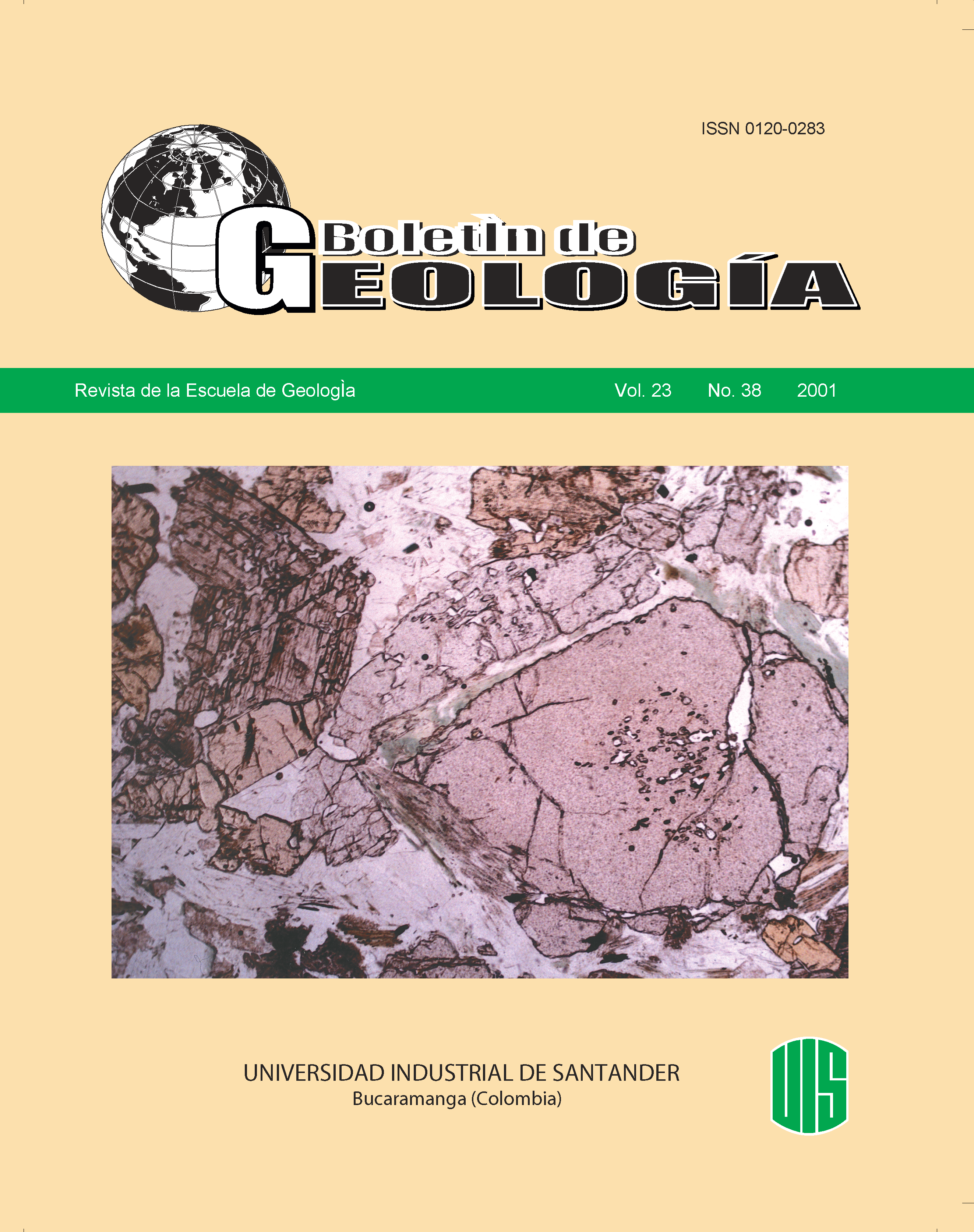Articles
Callawayasaurus colombiensis (Welles) Carpenter 1999 el plesiosaurio de Villa de Leyva (Boyacá, Colombia). ¿Un nuevo espécimen?
Published 2001-10-02
Keywords
- Cretaceous,
- Plesiosaurs,
- Villa de Leyva
How to Cite
Jerez Jaimes, J. H., & Narváez Parra, E. X. (2001). Callawayasaurus colombiensis (Welles) Carpenter 1999 el plesiosaurio de Villa de Leyva (Boyacá, Colombia). ¿Un nuevo espécimen?. Boletín De Geología, 23(38), 9–19. Retrieved from https://revistas.uis.edu.co/index.php/revistaboletindegeologia/article/view/3973
Abstract
In the deposits of the Cretaceous (Aptian) of Villa de Leyva two plesiosaurs species have been reported, a pliosaur Kronosaurus boyacensis Hampe 1992, and a plesiosaur Callawayasaurus colombiensis (Welles) Carpenter, 1999 (= Alzadasaurus colombiensis Welles, 1962). We carried out the determination of elasmosaur specimen found by the inhabitants of the rural area of Villa de Leyva in 1999, on the basis of photographic material of it. Probably it corresponds to the Callawayasaurus colombiensis specie (Welles) Carpenter, 1999.
Downloads
Download data is not yet available.
References
Carpenter, K. (1999). Revision of North AmericanElasmosaurs from the Cretaceous of the WesternInterior, Paludicola, Vol. 2(2), pp. 148-173
Everhart, M. J. (2000), Gastroliths associated withplesiosaur remains in the Sharon Springs Memberof the Pierre Shale (late Cretaceous), WesternKansas. Kansas Acad. Sci. Trans. Vol. 103(1-2), pp.58-69
Hampe, O. (1992). Ein grosswuechsiger Pliosauridae(reptilia: Plesiosauria) aus der Unterkreide (oberesAptium) von Kolumbien. Courier ForschungsinstitutSenckenberg, Vol. 145, pp. 1-32.
Sato, T y Tanabe, K. (1998). Cretaceous Plesiosaursate ammonites. Nature, Vol. 394, pp. 629 - 630
Welles, S. P. (1962). A new species of elasmosaurfrom the Aptian of Columbia, and a review of theCretaceous plesiosaurs. University of CaliforniaPublications in Geological Sciences Vol. 46, pp.1-96
Everhart, M. J. (2000), Gastroliths associated withplesiosaur remains in the Sharon Springs Memberof the Pierre Shale (late Cretaceous), WesternKansas. Kansas Acad. Sci. Trans. Vol. 103(1-2), pp.58-69
Hampe, O. (1992). Ein grosswuechsiger Pliosauridae(reptilia: Plesiosauria) aus der Unterkreide (oberesAptium) von Kolumbien. Courier ForschungsinstitutSenckenberg, Vol. 145, pp. 1-32.
Sato, T y Tanabe, K. (1998). Cretaceous Plesiosaursate ammonites. Nature, Vol. 394, pp. 629 - 630
Welles, S. P. (1962). A new species of elasmosaurfrom the Aptian of Columbia, and a review of theCretaceous plesiosaurs. University of CaliforniaPublications in Geological Sciences Vol. 46, pp.1-96
